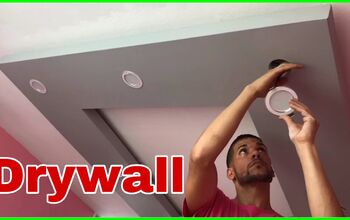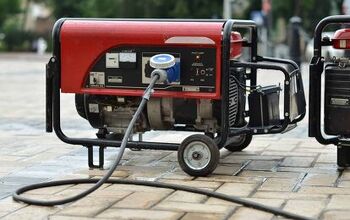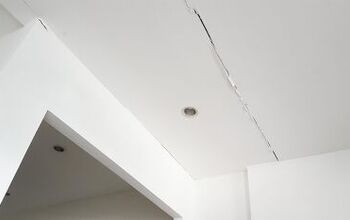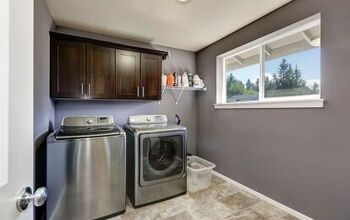Mini Fridge Makes Popping Noise? (Possible Causes & Fixes)

Regardless of the size, type, brand, or age of your refrigerator, it won’t be completely silent and may even make some popping noises from time to time. This is simply due to the fact that there are a lot of mechanisms continually working within and around your refrigerator.
Your refrigerator will make quite a bit of popping noises that may seem strange but aren’t all that unusual. However, there are some noises that may be tell-tale signs of a deeper problem with your fridge.
A mini-fridge can make popping sounds due to thermal expansion or if the water valve is damaged. Inspect your water valve and replace it if it is damaged to stop the popping sound. Make sure that you use the correct outlet or extension cord so that you don’t overload the compressor which can create popping noises.
Natural noises such as ice falling from the freezer are obviously no cause for concern. However, loud noises should be investigated, and identifying the problem can help lead to a quick fix. Regardless, we will outline all of the possible causes for your mini refrigerator’s popping noises as well as any relevant solutions.
Do You Need Appliance Repair Services?
Get free, zero-commitment quotes from pro contractors near you.

What Could Be Causing A Popping Sound In My Mini Refrigerator?
Before we dive in too deeply, let’s examine some normal refrigerator operating sounds to help narrow down any malfunction issues.
- Sounds caused by all of the different components contracting and expanding as the temperature changes.
- If your mini fridge has an ice maker, they produce noises when the ice is being dumped. On some models, there is an ejector arm that drops the ice cubes out of the mold and produces a popping sound.
- Noises caused by the water inlet valve allowing water into the machine.
- Popping, gurgling, or knocking sounds are caused by your defrost heater cycling on and off.
- If the fan in your refrigerator is misaligned or bent in the housing, it could result in a popping noise. Additionally, the fan will change speeds in response to temperature shifts, and this can also produce a slight popping sound.
- If your fridge has a defrost timer, it can make a similar noise. The timer’s purpose is to cause the heater to come on, and sometimes this produces a popping or clicking noise.
Now that you understand some general popping noises that are caused by a properly functioning refrigerator, we’ve provided some additional clarification to help you further assess what’s exactly happening on your own.
Video: Fridge Noises
Thermal Expansion
For further explanation, thermal expansion is probably the most common cause of popping noises in any type of refrigerator. Although refrigerators are typically a cold appliance, they do change temperatures often. These temperature shifts will occur as the cooling cycle turns off and on, as well as when the defrost system is melting the frost off of the evaporator coil.
The temperature changes are very slight; however, as the inside gets warmer and cooler, they will cause the plastic and other materials of the refrigerator to expand and contract. You will likely experience the materials making a popping noise as these temperatures rise or drop.
Although it may sound unusual, it’s actually completely normal and should be no cause for concern. Popping noises caused by the contraction and expansion of the inner walls are simply just part of the routine workings of your refrigerator.
Vibrations
Another normal cause for popping sounds is the regular vibrations that take place within your refrigerator. Although unlikely in a mini-refrigerator, your compressor motor can sometimes cause enough vibrations to cause objects inside to hit each other. This will appear like a continuous popping sound when heard outside of the appliance.
Also, if your refrigerator rests on uneven ground, the back and forth movement of the unit may cause a popping noise. Or if you have any random loose items on or near the refrigerator, these may be vibrating and resulting in the same type of sound.
Water Valve
While there are only a select few types of mini-refrigerators that have ice-making capabilities, if yours does, the water valve may be the cause for the popping noise. Located on the back of your refrigerator, the water inlet valve regularly opens to allow water to flow into your ice maker. When it does this, it’ll make a popping or snapping noise.
When your water valve is functioning normally, this sound will only occur from time to time. However, if you’re noticing a continuous popping noise, verify that the water supply is not interrupted. If water is unable to come through the valve for whatever reason, it will likely continue to pop and be rather noisy. An issue like this will be hard to miss.
Replacing A Bad Water Valve
If you noticed that water is not flowing to your ice maker or water dispenser, you likely have a faulty water inlet valve. A bad water valve could either mean that you have a valve that is stuck closed, or it may be stuck open, and the water flow is constant. In either case, you’ll want to install a replacement water valve.
This can be done easily by first turning off the power and water supply to the refrigerator. You’ll then want to detach the back panel, access the water inlet valve, and remove the valve assembly. By taking off the wire harnesses, you’ll be able to disconnect the old valve completely.
Next, you will want to install the new valve assembly and secure it in place exactly how the old one was located. Replace the wire harnesses on the new wire valve and slide the refrigerator’s water line into the water valve.
Once you secure the water supply line and put the back panel on again, your water inlet valve should now be functioning like normal. With a brand-new water valve, the continuous popping noise should disappear.
Compressor Overload
If you’ve ruled out all the other possible causes for your mini refrigerator’s popping sounds, you may be hearing the compressor overload. If your compressor has a locked rotor, gets too hot, or is trying to start against high head pressure, the overload will result in a popping or clicking sound.
To assess this, you’ll want to get behind your unit where the compressor is located, and if the noise is coming from there, you should be able to tell immediately. Place your hand on the compressor, and when the sound occurs, you will be able to feel it.
The most common causes of a compression overload are using an extension cord that is too long or a gauge wire that is too light. However, if these do not fix the issue, you’ll likely need to consider seeking a professional’s help or getting a replacement refrigerator.
Pulsating Sounds
Another common noise that can come from your refrigerator is a pulsating sound. Thankfully, this is typically a very simple issue. You likely have a small screw that has broken loose from one of the mechanisms and is stuck in one of the many nooks and crannies of the unit.
Also, the evaporator can cause a pulsing noise if it’s on its way out since it absorbs heat from the interior of the appliance. Additionally, the rotating fans of the evaporator can cause noises and other issues if they’re covered in dirt or damaged.
Check that your evaporator coils are free of dust and dirt. Clean them regularly to avoid any unpleasant noises and keep your fridge in good functioning order.
Related Questions
What are the signs of a bad refrigerator compressor?
Can a fridge compressor explode?
Is a clicking fridge dangerous?
Do You Need Appliance Repair Services?
Get free, zero-commitment quotes from pro contractors near you.

Wrapping It Up
Many factors could be the cause of your mini-refrigerator, making distinct popping noises. While some of these reasons are more common than others, you should first begin by understanding that the appliance will make noises even when it is functioning correctly.
The more common and most likely reason for the popping sounds is simply a thermal expansion. As the temperature changes within the unit, the walls will contract and expand, making what sounds like a “pop” noise. This is not something you need to be concerned about; however, make sure that you’re also double checking the water valve, compressor, and evaporator coil to rule out any other significant problems.
For another standard refrigerator issue visit, “ Why Won’t My Frigidaire Water Dispenser Shut Off?” Always keep your mind open to what the issue could be, and check out all possibilities before calling a specialist.
Related Guides

Jessica considers herself a home improvement and design enthusiast. She grew up surrounded by constant home improvement projects and owes most of what she knows to helping her dad renovate her childhood home. Being a Los Angeles resident, Jessica spends a lot of her time looking for her next DIY project and sharing her love for home design.
More by Jessica Stone



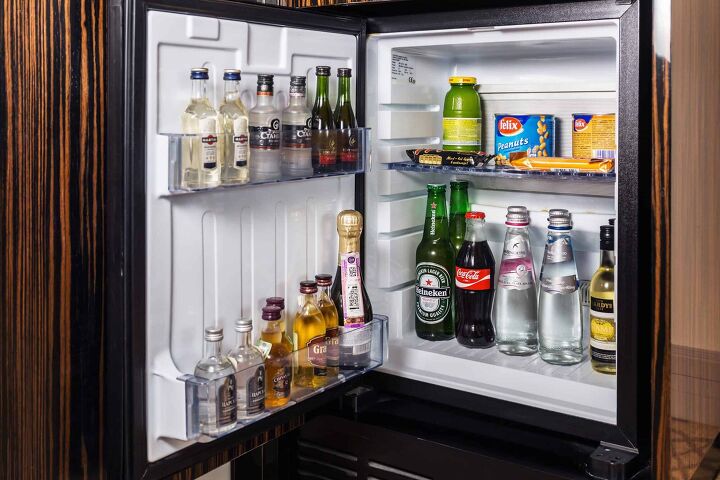






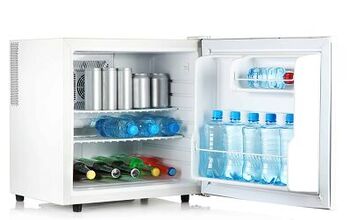
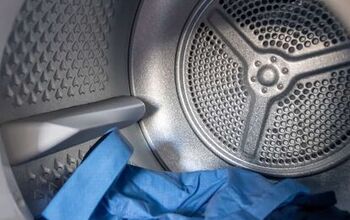
![10 Best Cordless Leaf Blowers – [2022 Reviews & Ultimate Guide]](https://cdn-fastly.upgradedhome.com/media/2023/07/31/9070789/10-best-cordless-leaf-blowers-2022-reviews-ultimate-guide.jpg?size=350x220)

![Finishing Basement Without Permit [Is It Really Illegal?]](https://cdn-fastly.upgradedhome.com/media/2023/07/31/9070078/finishing-basement-without-permit-is-it-really-illegal.jpg?size=350x220)



